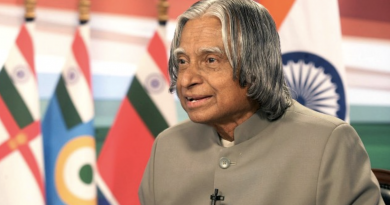OPINION: Time to support the Iranians who boycotted the sham election
by Cameron Khansarinia
And trust cannot exist as long as Raisi’s regime does.
The very selection of Ebrahim Raisi as an electoral candidate, and then his victory highlighted the sham that is Iran’s electoral process.
Known widely in Iran as the “Hanging Judge” or “The Butcher of Tehran” for his direct role in massacring thousands of political prisoners, Raisi as the president of the Islamic Republic should make clear to the world what has long been clear to the people of Iran: this regime cannot be dealt with because it cannot be trusted.
For nearly half of the regime’s bloody rule, many outside Iran have touted the notion of “reform” or “moderation” within the Islamic Republic establishment. Criminal clerics like Hassan Rouhani and their allies like Javad Zarif have been held out as figures with whom reasoning is possible and for whom Iran’s national interests outweigh those of the system.
Regime apologists who spent years diverting international attention from the Islamic Republic’s crimes against humanity at home and terrorism abroad by promoting the false notion of regime moderation have now pivoted to blame the United States for Raisi’s election. Some have even begun making the case that the man who personally handled the executions of children is not as bad as he may seem.
No matter how well-financed and well-spoken the Islamic Republic’s foreign propaganda machine is it will not be able to change the fact that the hardliners it long said could not be trusted now occupy every relevant position within the Islamic Republic. Their rhetoric, despite its eloquent English and well-placed publication, must defend Raisi’s reality rather than a Viennese fantasy.
In reality, the Islamic Republic cannot be trusted. The facade of trust manufactured by “moderates” like Zarif is now largely discredited and irrelevant due largely to missteps by the moderates themselves. The trust, or rather contrived confidence, during the Obama administration, was based largely on wishful thinking. Both President Obama and Secretary Kerry repeatedly referred to the purported fatwa, or religious edict, that Ali Khamenei had issued against the development of nuclear weapons.
Recently, however, the regime’s intelligence minister has disavowed the fatwa for which Secretary Kerry had “great respect” and said the Islamic Republic was not bound by the edict. Speaking on state television, he said that if Iran were pressured it may indeed develop a nuclear bomb. A theocracy that cannot be trusted to respect even its religious edicts can certainly not be trusted to be loyal to a treaty with countries it has sworn to destroy.
If abrogating a fatwa seems inconsequential, the Iranian regime has long proven itself an untrustworthy partner through various additional breaches of international treaties. Indeed, the very basis of the ongoing talks in Vienna, to the impartial observer, appear more comedy than drama. The P5+1 strategy is simple: diplomatic negotiations in an attempt to control the regime’s nuclear program via an international accord. What they ignore is the Islamic Republic’s long track record of ignoring and breaking international accords, both diplomatic and nuclear.
The Iranian “diplomats”’ sitting across from the French, Germans, and Americans in Vienna represent a regime with no respect for the Vienna Convention on Diplomatic Relations which protects the very diplomats attempting to renegotiate the defunct JCPOA. From taking American diplomats hostage for 444 days as its diplomatic debut to the world, its attempted assassination of the Saudi Ambassador in Washington, and then its sponsored storming of the British Embassy in Tehran, the Islamic Republic has long shown a blatant disregard for diplomacy and indeed a violent animosity towards it.
Iran consistently violates the Nuclear Nonproliferation Treaty despite remaining an active signatory. It has blocked IAEA access to nuclear sites and continued on its enrichment path in clear breach of mutually agreed to IAEA deadlines and United Nations resolutions. If the regime in Tehran can’t be trusted to respect treaties on diplomacy and nuclear issues it has already signed, why should it now be trusted to respect a diplomatic agreement on its nuclear program?
It can’t. Ebrahim Raisi is a man who personally ordered and watched as Iranian prisoners were raped, newborn babies were thrown against the floor, and activists were executed. His regime violates its own religious edicts and dozens of international laws and conventions. Where trust does not exist, no relationship can exist. And trust cannot exist as long as Raisi’s regime does.
Now is not the time to make a deal with Raisi and his regime. Now is the time to focus on the vast majority of Iranians who boycotted the sham election and are saying, with one voice, “No to the Islamic Republic.”
Cameron Khansarinia is Policy Director National Union for Democracy in Iran. He is an alumni of Harvard University. He tweets under @Khansarinia.



